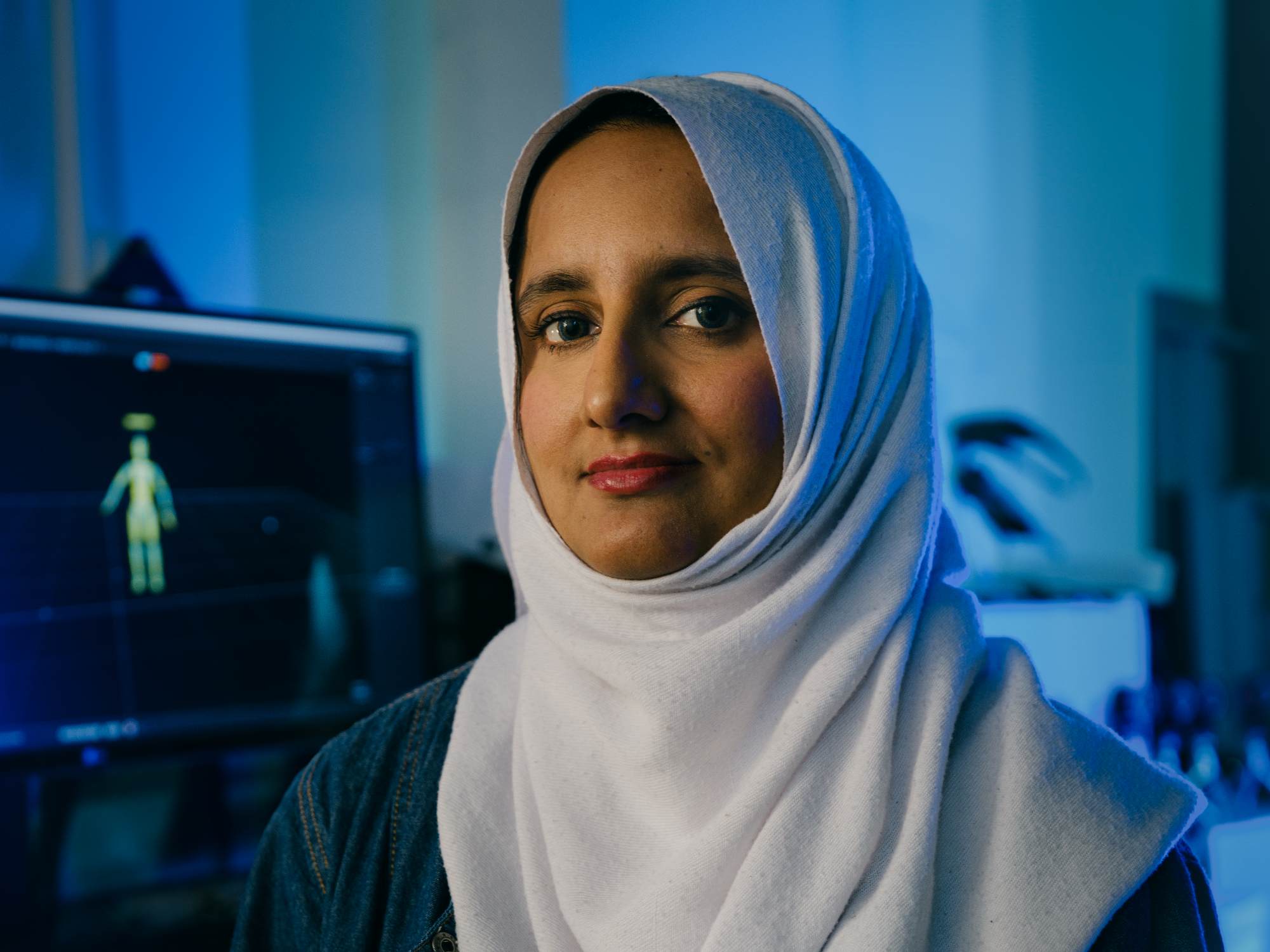Rehabilitation medicine student researches new treatments for spinal cord injuries
Anna Schmidt - 9 December 2024

Aysha Khan
Aysha Khan landed in Edmonton on a brisk February day last year, prepared to pursue her doctoral dream on the Canadian prairies. The move marked her first trip outside of her home country.
“No one from my family ever moved out of country for studies,” says Khan. “In Pakistan, I belong to a village, and it’s a patriarchal system. … They say girls should not go out alone. But my parents said: ‘If she’s interested, she should go.’ ”
Back in Pakistan, Khan was working at a hospital, having completed a degree in physical therapy and a masters’ in neuromuscular rehabilitation. “I saw a lot of patients with spinal cord injuries. … I wanted to find a cure for them,” she says. Emboldened by this dream and her family’s steadfast support, Khan left her therapy role in Pakistan to conduct research into spinal cord injuries at the U of A.
Khan is now a PhD student at the University of Alberta, and credits experiential learning opportunities for supporting her research – the kind of opportunities made possible by Shape the Future. Shape the Future is a fundraising campaign dedicated to student success through three main areas: enhanced learning environments, hands-on experiences, and scholarships, awards and bursaries. By supporting the campaign, donors can help students like Khan gain the critical skills she needs to push medical knowledge forward, aiming to one day help those affected by paralysis regain mobility.
For her PhD in rehabilitation medicine, Khan is working in the Neuro-Recovery Lab under Dr. Keith Fenrich to understand the role interneurons play in the cervical spine (the vertebrae in the neck). Interneurons relay signals between the sensory neurons and the motor neurons that control movement — and Khan suspects they may play a vital role in reaching and grasping with the arms and hands.
Without the U of A’s rigorous training and modern facilities, Khan would never have pursued this project, says Khan who spent time training and practicing her surgical skills in the Ray Rajotte Surgical Medical Research Institute.
Across the university, donors help fund countless experiential learning opportunities like the ones Khan participated in, while also providing essential support in the form of scholarships, awards and bursaries, ensuring students have the fiscal freedom to focus on their studies.
“If I didn’t have resources to study mobility issues, then I couldn’t help anyone else,” says Khan. “If my research project goes well, people could use their hands — even after their injury. That’s the biggest motivation ever.”
Along with her quest to cure paralysis, Khan also hopes to provide students back home with the same experiential learning opportunities she’s received at the U of A. By supporting this kind of hands-on learning, donors help students like Khan build real-world skills, empowering them to change the world, one experience at a time.
“These experiences broadened my view,” she says. “We don’t have labs like this in Pakistan. … My dream goal is to create a research lab so people may learn how to serve humanity.”
Students have a remarkable will to change the world. They will broaden our horizons, feed the world, improve health outcomes and take on inequity. Join the Shape the Future campaign as we raise $100 million to provide the next generation of U of A change makers with the access, opportunities and spaces that will help them shape an inspiring future for all.
- See how Khan and others will make a difference in the Shape the Future video.
- More Stories of Impact: